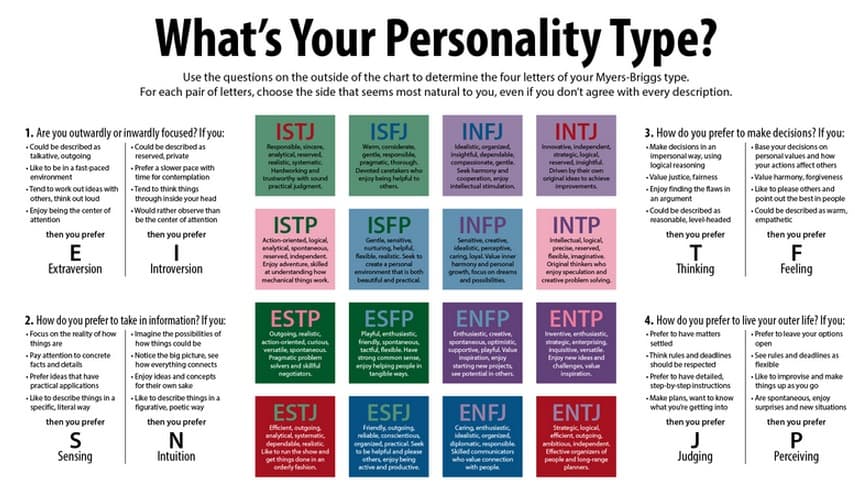Advertisement
Might Personality Tests Of Patients Improve Preventive Health Care?

By Veronica Thomas
Guest contributor
Before entering my freshman year of college, I was asked to complete a Myers-Briggs Type Indicator personality test so the school could match me to a compatible roommate. She and I ended up living together all four years.
In fact, the Myers-Briggs tool, which classifies each individual as one of 16 personality types, is considered such a powerful tool that most college career centers and Fortune 500 companies use it to help people determine their appropriate course in the work world.
Soon, doctors, too, may conduct personality tests with patients to help tailor their care. A recent study, published in the Journal of Personality and Social Psychology, found that personality might play a key role in preventive health care among young-adult patients — the sort of patients now likelier to be covered by Obamacare and actually come in for check-ups.
Instead of 16 personality types, researchers from Duke University examined the “Big Five” personality traits, which provide the foundation for most personality assessments. They include conscientiousness, extraversion, agreeableness, neuroticism and openness to experience.
It's probably not surprising that conscientious 26-year-olds had better health outcomes at age 38. But the effect size is impressive: 45 percent of the least conscientious individuals developed multiple health problems by age 38, compared to 18 percent of the most conscientious group.
Conscientious people generally may be healthier due to diligent behaviors outside of the physician’s office, such as exercising and eating nutritiously, rather than because of their health care, the study notes.
What might be surprising is that neurotic young adults did not have declining physical health later in life (though they perceived their health as worse than non-neurotic adults.) This contradicts many theories linking traits of neuroticism, such as anxiety, to worse health.
The APA press release, published this week, includes commentary from the lead author, Salomon Israel, PhD, of Duke University and Duke University Medical Center:
“Personality traits can be measured cheaply, easily and reliably, and these traits are stable over many years and have far-ranging effects on health,” said Israel. “Our findings suggest that in addition to considering ‘what’ a patient has among risks for chronic age-related diseases, physicians can benefit from knowing ‘who’ the patient is in terms of personality in order to design effective preventive health care.”
While the doctor may benefit from knowing the patient’s personality type, I can’t help but wonder whether the patient would. Would knowing that you're neurotic enhance your health care experience, or would it just make you more stressed and anxious?
With more evidence, I suppose one day we may have another form to complete while sitting in stiff waiting-room chairs. After questions about smoking and our family history of diabetes, we may also have to contemplate whether or not we agree with the statement, “I am the life of the party.”
Readers, would you like your doctor to know your personality scores?